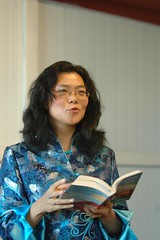Saving no longer tops China's agenda - Shaun Rein
 Shaun Rein by Fantake via Flickr
Shaun Rein by Fantake via Flickr"We interviewed 5,000 people under the age of 32 across China. They have an effective savings rate of zero," he said.
Not only are the young abandoning the thrifty habits of their parents and grandparents, they are also starting to follow the example of American consumers by buying on credit. Rein said the number of credit cards in China has jumped from 13.5 million to 200 million in just five years.
"Younger Chinese are unbelievably optimistic. That's why what you see is a secretary earning six or seven hundred dollars a month – they're the ones buying thousand dollar Gucci bags.".Consumers have become the thriving force behind China's economic growth:
Rein also points to major demographic shifts. Women are increasingly taking the big spending decisions in Chinese households and in many cases are the major breadwinners. Women's concerns about product quality and food safety in particular are favoring high end, especially foreign brands. In the wake of the melamine scandal, wealthier young mothers even began to fly overseas to stock up on baby food.
The fastest growth in consumer spending, says Rein, is taking place in China's lower tier cities and rural areas. When the government gave subsidies to rural families to buy consumer durables as part of its stimulus package, fridges and cookers sold well, but televisions did not. The reason, Rein said, is that flat screen televisions were not subsidized, and people no longer wanted older box-style sets.Commercial
Shaun Rein is a speaker at the China Speakers Bureau. Do you want to share his insights at your meeting or conference? Do get in touch.

Labels: China, China Speakers Bureau, consumers, Public Speaking, Shaun Rein









































